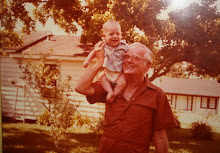I can see the inside of that courtroom just as clearly as if I had been there yesterday. Packed with confusion, there was little room left to stand. I arrived late, having spent a few minutes outside smoking cigarettes to cover up the pot smell. So, when I got inside I casually leaned against the back wall, opened up my well-worn copy of Hunter S. Thompson’s The Great Shark Hunt and began reading.
I wasn’t taking the proceedings very seriously. Hell, I thought to myself, I wasn’t here for anything serious at all. About a month before I had had the unfortunate experience of being issued a misdemeanor summons for taking advantage of a candy machine. The damn machine didn’t work. Y’see, you could put a dime in the thing and turn the knob to get your candy, or you could just turn the knob. Either way you would get the candy. Not having two nickels to rub together, I commonly chose the latter option.
Well, one evening, just after a small group of friends and I had made a withdrawal, we found ourselves surrounded by a parade of cop cars. We were all pretty young and fairly irreverent in the presence of authority figures; so I guess we caused a little more trouble than we should have. Regardless, however, the whole event seemed absurd from the beginning. The cops made a big scene, we made a bigger scene; but in less than two hours I was at the bar with a few friends laughing it off.
Two months later I was in that little courthouse watching it pump out “justice” like cheeseburgers. The clerk called the name; the judge asked for the plea; and the sentence was given. Bun, ketchup, mustard, pickle, beef and cheese! When my turn came I was confused and high. “Any questions?” the public defender asked me. Not really, I responded. “Is this all necessary? I mean, it was about eight cents worth of candy,” I commented incredulously.
I don’t think he was paying much attention. He told me that I should just make it as painless as possible and plead guilty. Fine. Hell, I was guilty!
“$500.00 fine and 250 hours of community service,” the old judge rattled out. Wrap it up, add fries and a coke!
The entire experience was dizzying, and not just because I was high. The prosecutor didn’t have my file, the arresting officer wasn’t there, the public defender seemed incompetent, and the judge clearly didn’t understand that I had been charged for taking candy from a candy machine not breaking into a vending machine. Either way, I was fucked! $500.00 was nearly an entire month’s salary for me at that time. And 250 hours of community service was going to be impossible. Any competent defense attorney could have had the frivolous charges dropped completely. Or, at the very least, the case could have been dismissed in the absence of the arresting officer. None of this happened. So, I lived on very little food, clocked a lot of hours at the Salvation Army, and spent the next year and a half worrying that any run-in with the law (however small) would result in jail time—all for less than 10 cents worth of Sweet Tarts!!!!
Reading through Amy Bach’s Ordinary Injustice: How America Holds Court, I was struck by how common this predicament is. In day-to-day criminal court, abuses happen with such regularity that they go almost unnoticed. Defendants spend months in jail awaiting trials for offences that, if properly defended, wouldn’t result in community service. Judges coerce guilty pleas from defendants. Public defenders fall asleep at trial. And prosecutors refuse to admit that they’ve convicted the wrong man even when confronted with indisputable proof.
Anyone who’s watched a few episodes of Law and Order is familiar with the principle of our adversarial justice system. In theory, a persuasive prosecutor argues the state’s case. A well-prepared defense attorney challenges the case. And a disinterested judge is present to ensure no one’s rights are violated. What we understand to be justice, then, emerges from this process. We accept errors (innocent men locked away for years, guilty men let loose) only because we believe so strongly in the rigorousness of the process. All too often, however, the defense attorney is over-burdened, the prosecutor is concerned only with convictions that benefit his political career, and the judge is anything but disinterested. In this way, the adversarial system of justice degenerates into a close-knit clan of professional colleagues (judge, prosecutor, defense attorney) conspiring to speed defendants through the system without any regard for the rights of the accused or even the presumption of innocence.
This book made me feel ill, angry and disgusted. I recommend it to anyone. I don't, however, recommend fucking with a candy machine.







